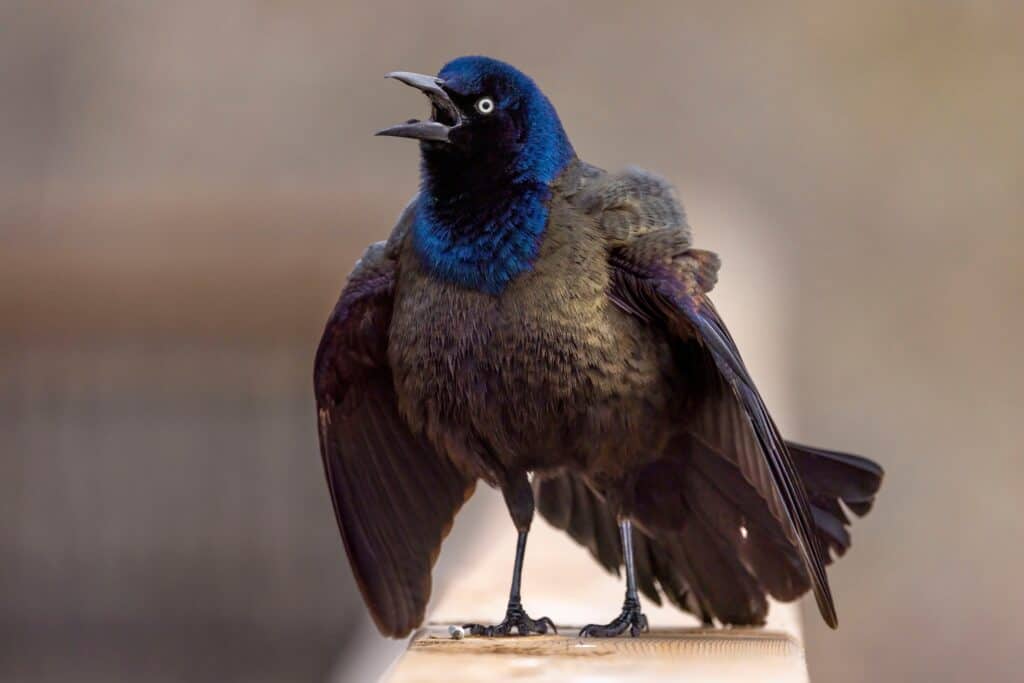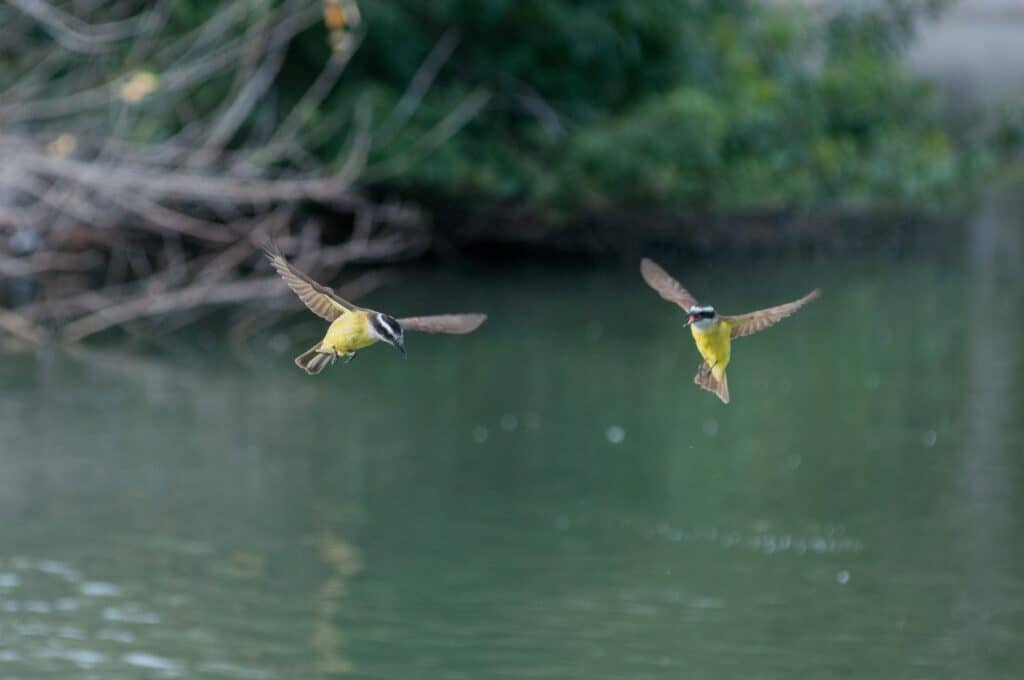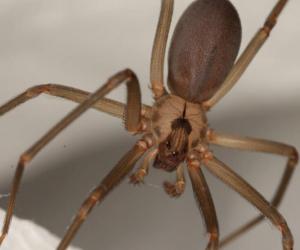How Do Birds Sing?
There are few sounds in nature as pleasant as birds singing. Each species of bird has a unique song, with differences in tones and notes depending on the situation. However, how do birds sing?
Continue reading below to learn not only how birds sing, but why.
How Do Birds Sing?

©Kendall Collett/Shutterstock.com
Nearly all animals are capable of producing some sort of sound. However, few species are able to reach the same complexities of sound in the same way that birds are able to. This is because birds have highly specialized anatomy designed for producing a variety of sounds in different ways.
Much of a bird’s sound originates from the same processes that sound comes from in humans. They inhale oxygen through the bill and bring it into the lungs before exhaling in order to nourish the body with essential oxygen. However, they also use some of this air to aid in sound, just like humans do.
The anatomy is different, though. For humans, sounds come from the larynx, a cavity at the back of the throat that contains vocal cords. Birds don’t have a larynx. Instead, they have what is known as a syrinx. This may also be known as a lower larynx, and, rather than being located in the throat, it is situated in the division of the lungs. Each lung is able to act independently when it comes to sound, although the range and diversity of sound differs.
Some species are able to sing not only while exhaling but also inhaling. This is what allows certain species to sing without end for several minutes at a time.
The Reason Birds Sing

©Wirestock Creators/Shutterstock.com
There are two main reasons that birds sing. The first is to attract a mate. Different birds may have different songs used in courtship. These songs help draw the attention of a mate and establish bonds.
Birds will also sing to defend territories. A bird that is able to carry on a beautiful melody is often one that is strong and healthy. As a result, when their song travels large distances, possible rivals know that the bird harboring that territory is able to defend itself.









